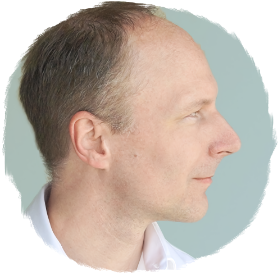I was under the impression that we’re good, gesamtgesellschaftlich betrachtet, as society as a whole, but this issue just keeps boiling up. It’s like a movie plot that keeps presenting itself over and over again. Different movies with the same plots.
I just don’t know how to write about it, yet. Let me try:
I bumped into this issue—again—a few days ago. After some quite remarkable psychological (I felt more peaceful and confident) and functional (I improved my walking) changes that came about by practicing my pelvis rolling class [How your pelvis connects to your head (UP9.1), youtube.com/watch?v=XOxG5hDnst]. I mean, I don’t mean by following along my own instructions as if they were mandatory guidelines, but by playing with the movements, on my own. In silence. And with music. Or while listening to podcasts. During the night or during the day. On my couch, in my bed, or on my carpet. For hours and hours, and hours. And let new movement patterns and discoveries reveal themselves, unfold.
I then, in search of reconciliation with society, I was reading Alice Miller. Or more like, I was flipping through some of her books, when the subsequent paragraphs drew my attention:
“These considerations help me to understand why so many analysts seem to shrink from their own discoveries. An example of this is offered by Helm Stierlin in Separating Parents and Adolescents (1974) when he uses the parable of the Prodigal Son to illustrate his therapeutic goals. The son returns from death to life by obediently coming back to his father, claims Stierlin, who thus, although he knows better, assigns obedience its biblical value. This means that the father designates as »death« everything that separated his son from him—the son’s youthful disobedience occurring at a time when the father was not part of his life—and describes as »life« his son’s return: »For this my son was dead, and is alive again; he was lost and is found.« Since Stierlin sees it as his therapeutic task to bring about a reconciliation between children and parents, he doesn’t notice that he is identifying with the father’s interests, at least in this case, or that the son finds his way back to his father and wins his love by being obedient. Stierlin does not realize that a restoration of harmony is being celebrated here only at the price of the son’s acquiescence in his father’s definition of everything that separated his son from him as »death«. In terms of the symbolism of this scene, one could say that in Stierlin’s therapeutic endeavors to bring about reconciliation, the relevance of his concept of delegation and its usefulness to the profession must be sacrificed for the sake of reunion with the father.”
Citations from Alice Miller, Du sollst nicht merken, Suhrkamp Verlag, 1. Auflage 1981, Page 341, Kapitel C8. 80 Jahre Triebtheorie. In English: Alice Miller, Thou Shalt Not Be Aware, A Meridian Book, 1986, 9th printing, Page 201, Eighty Years of the Drive Theory.
Let me copy down the following paragraph as well:
“A similar phenomenon can be found in the case of Horst Eberhard Richter. The same author who in 1963 published a brilliant book, Parents, Child, and Neurosis, which described parental power and the child’s victimization within the family with virtually unprecedented accuracy, speaks in his book, Der Gotteskomplex (1979), in English language, All Mighty (1983), of the child’s escape from fantasized, fatal helplessness into narcissistic omnipotence. How did it come about that one of the leading experts on the child’s family situation now refers to fantasized and no longer real helplessness? Furthermore, how can we explain the fact that someone who sees and describes the formative influence of the social milieu on adults as clearly, empathically, and with such dedication as Richter can do so without any concern for the earliest imprints? This would not be so puzzling in itself, for a great many professional psychologists still do not know how markedly and lastingly the individual is shaped by his or her childhood. But Richter already knew this full well in 1963. What became of his knowledge?”
So this is the topic. And of course, we know, bad things might happen all the time, not just in early childhood. At any age and at any stage of our lives we might trust in someone, or be in a situation where we depend on someone, and then maybe not only get hurt a little bit, but get hurt badly, maybe even permanently disabled, altered, or entirely re-programmed. We might not even know that we missed an important developmental milestone, or sustained damage, or lost something essential… such as the ability to feel ourselves, or the ability to skip, roll, jump, squat, make music, bake bread, take care of someone, be compassionate, stay cool-headed in an argument, see the bigger picture… and neither to what extend, or even worse: we might have no idea how to recover or carry on (if there’s any insight at all).
I’ve written about this before, by quoting John Taylor Gatto, and his book, The Underground History Of American Education, and his essay, The Seven-Lesson Schoolteacher. It’s the same topic. Different movie, same plot.
I’ve seen it before, heard it before, and I’ve also read about it before (for example in the case Wilhelm Reich vs Sigmund Freud). I’ve felt it before, as a kind of knowing, but now I can almost see it clearly. It’s like in the movies, for example, Netflix Stranger Things Season 1. For a while you suspect there’s a monster, and then you know there’s a monster. But you don’t get to see it, yet. Only when you’re so many episodes into the season you finally get to see it in full scale and get an idea of the full situation.
And still. How to talk about it. How to write about it? And what to do about it? And what’s worse, I can see this sickness running even in my own profession. It’s like being in Jack Finney’s, The Body Snatchers. All over again. And up to now, with the tools at hand, sneaking out of the city and then performing a clean amputation seemed to be the only viable solution.


